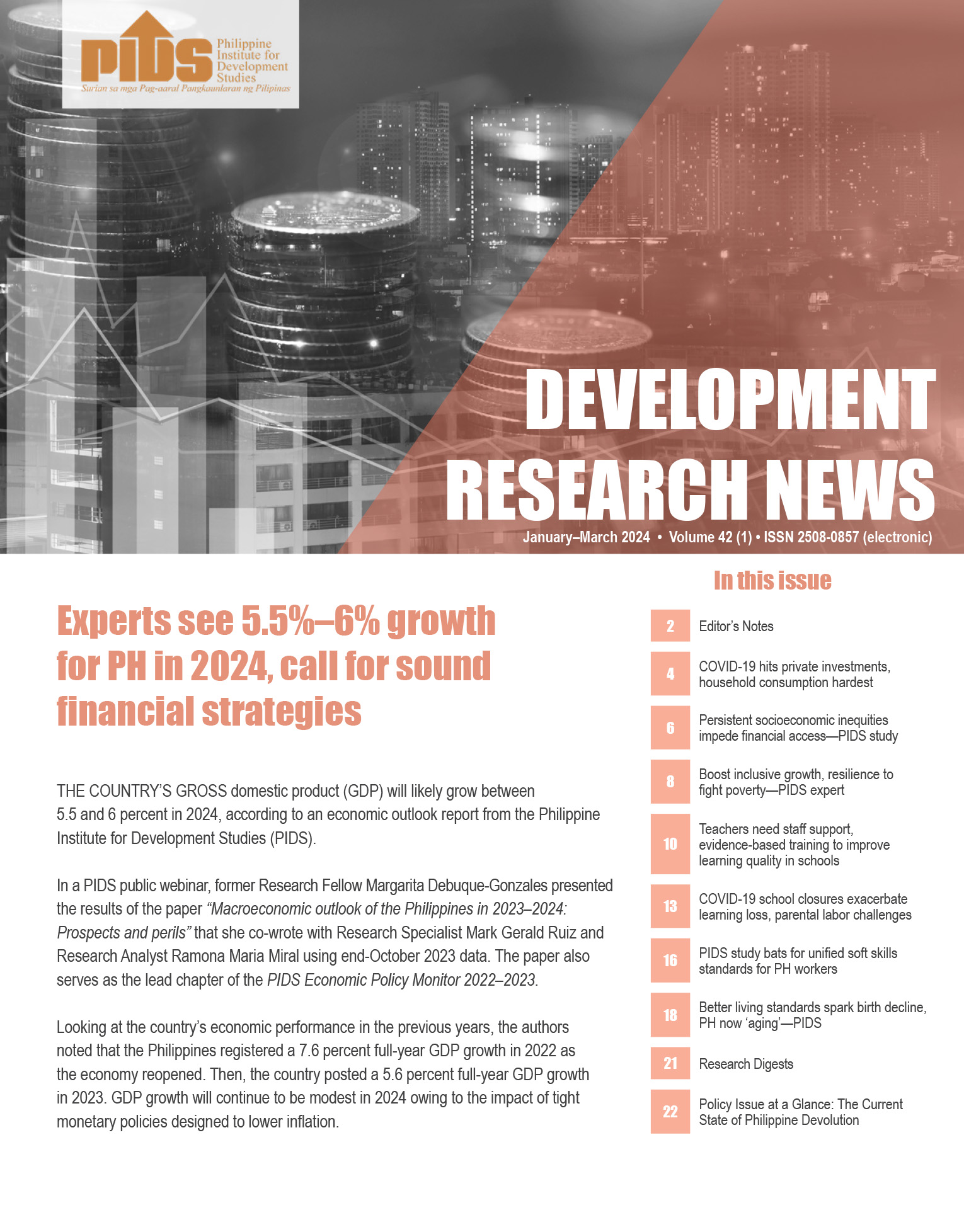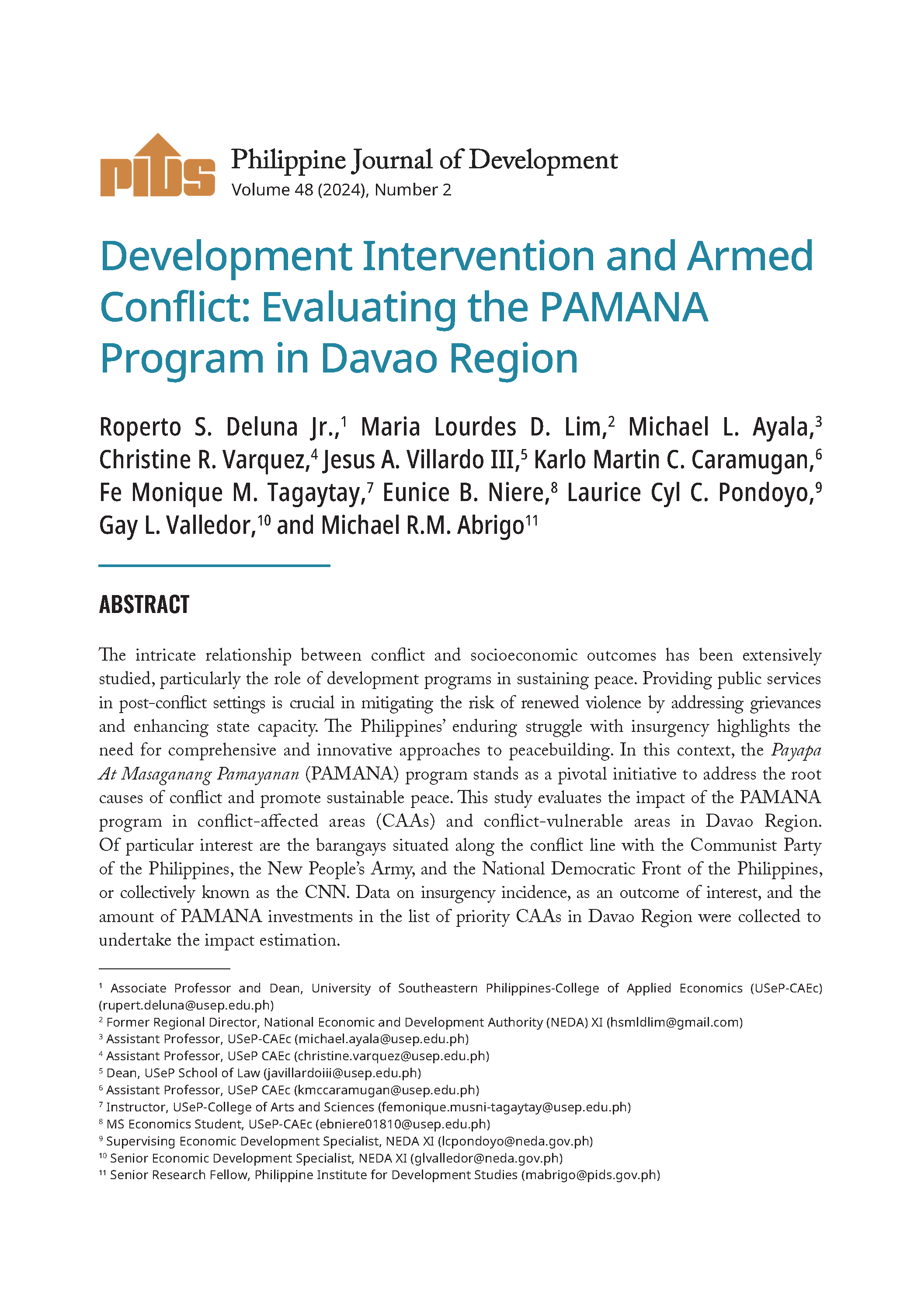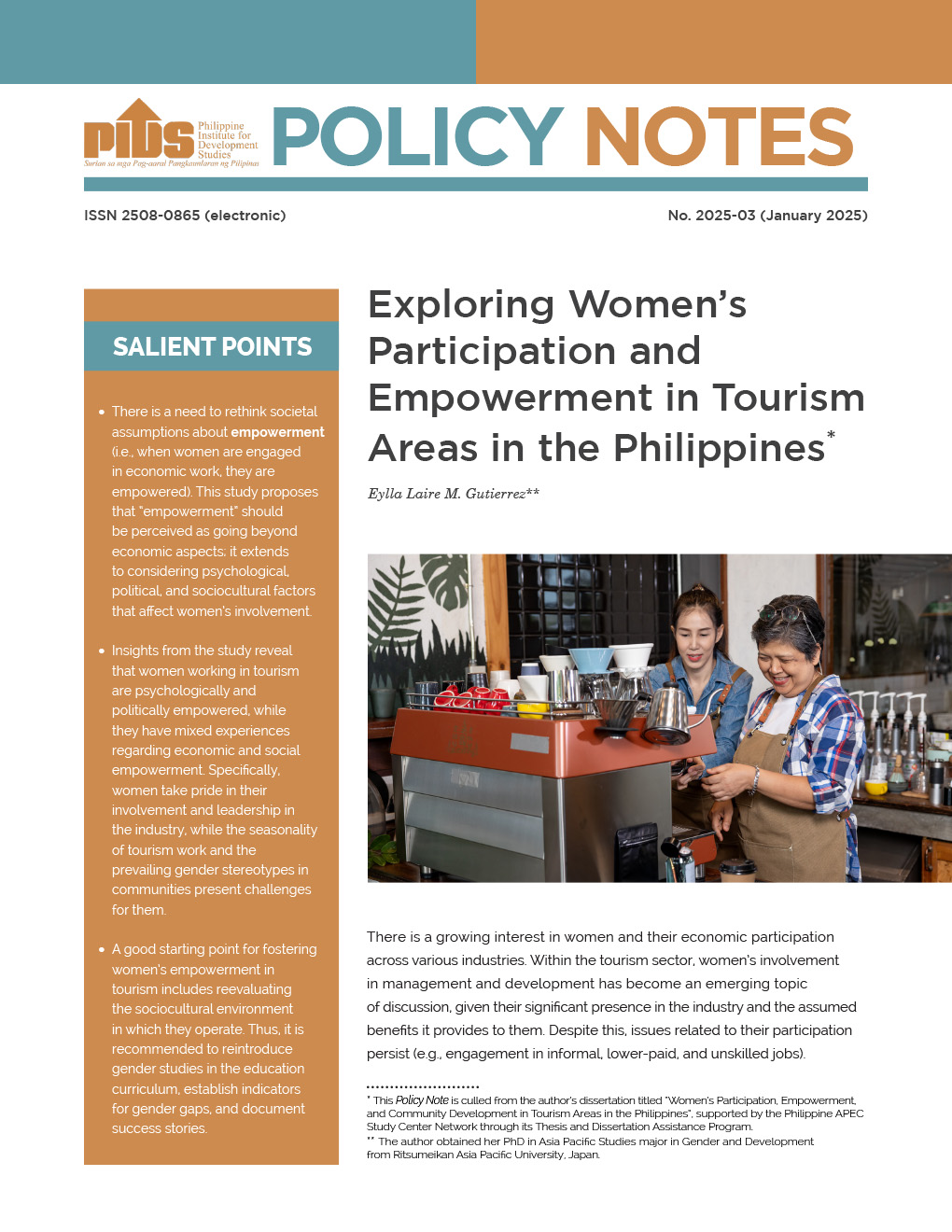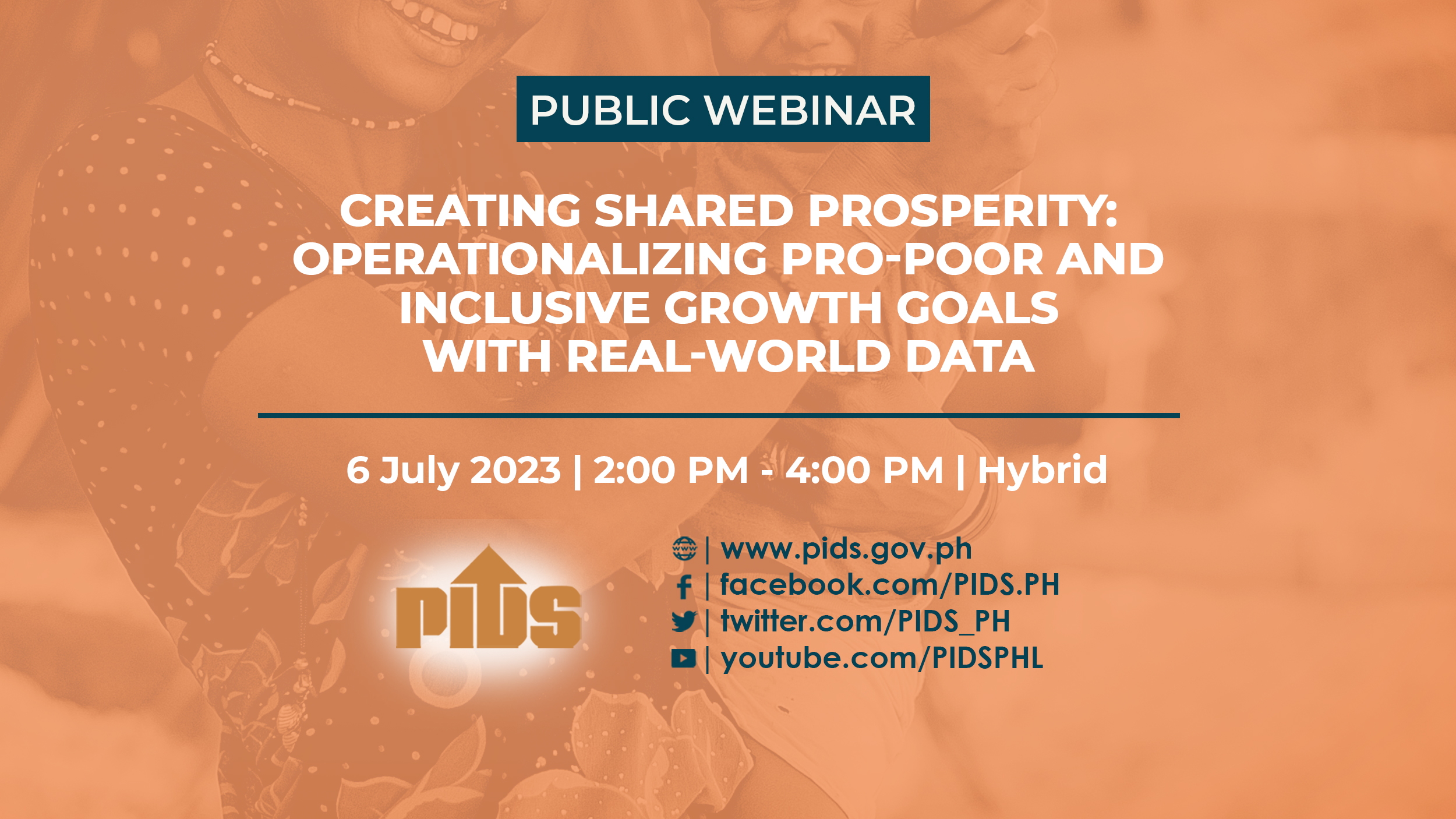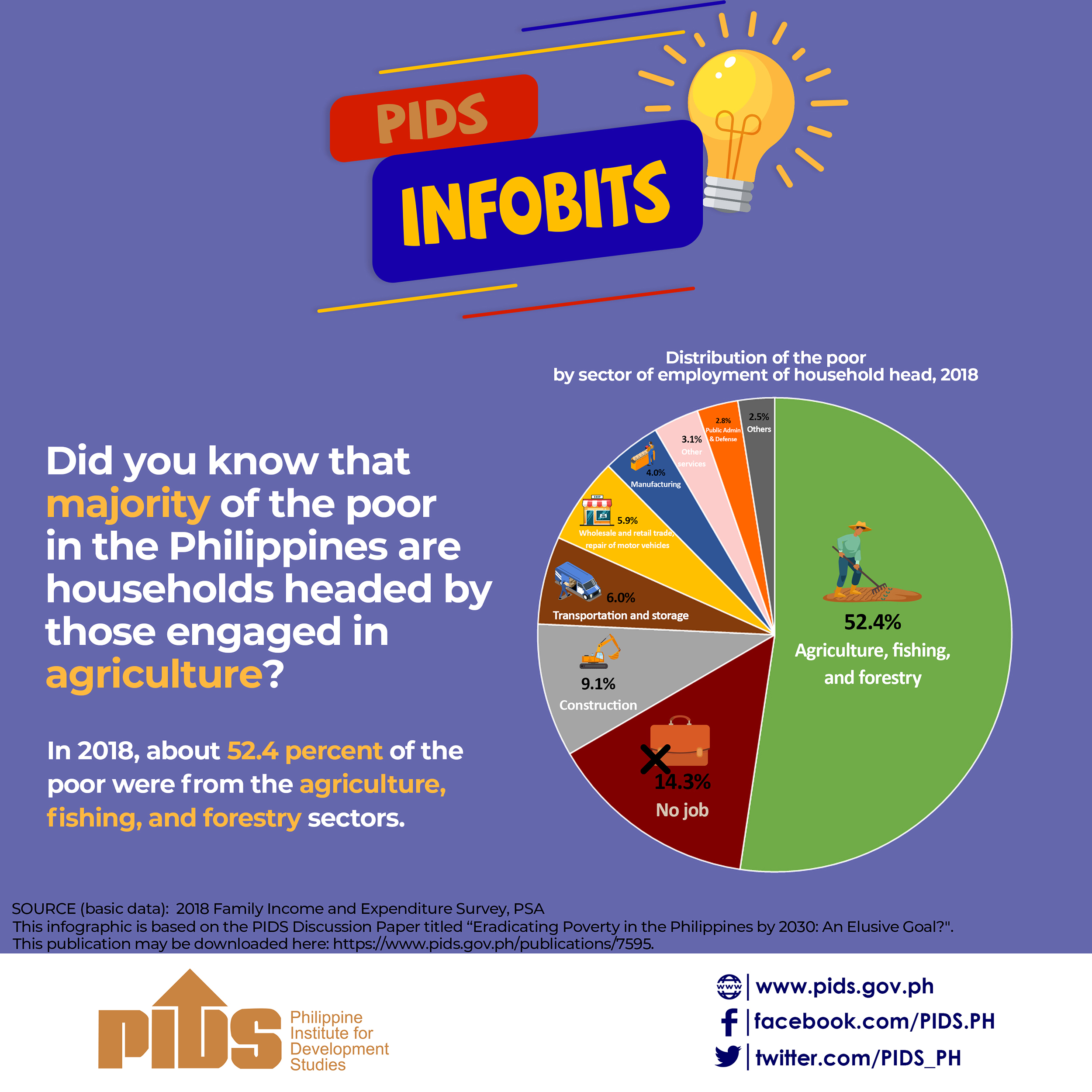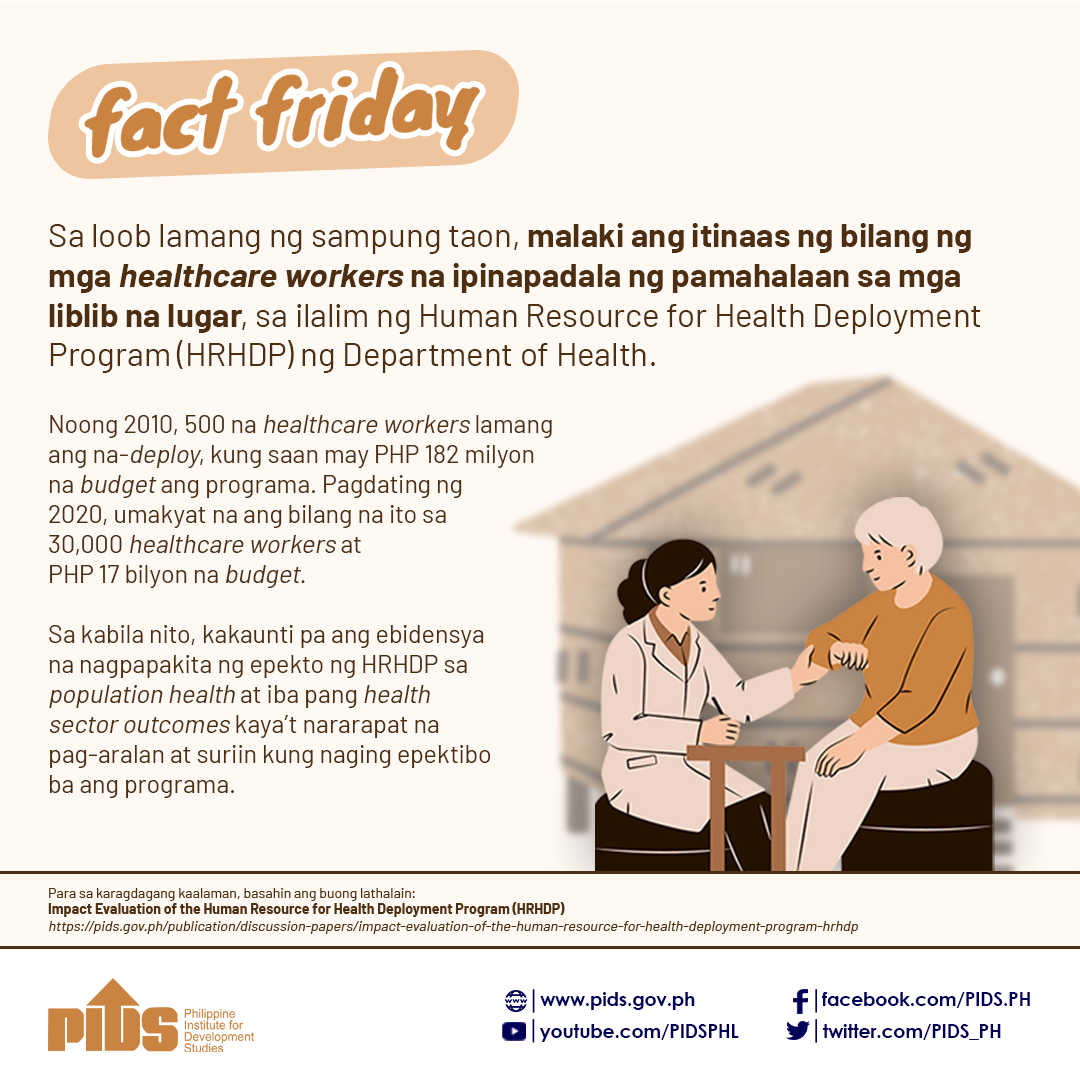ADOPTING a federal form of government may help improve the development of agriculture, though funding for "non-performing” regions must be addressed, experts said.
"[Federalism] will promote a more inclusive type of governance because our current type is limiting,” research fellow Roehlano M. Briones of the Philippine Institute for Development Studies said in a phone interview.
Devolving authority and increasing self-government would open up opportunities to forward-looking individuals who may be lesser known but competent to implement agricultural projects, Mr. Briones said.
Among the legislative priorities of the incoming Duterte administration is the convening of a Constitutional Convention in line with the President-elect’s campaign advocacy of federalism.
Also sought for comment, Rolando T. Dy, executive director of the Center for Food and AgriBusiness of the University of Asia & the Pacific, said he is in favor of a federal form of government as it can "resolve the issues of and strengthen agriculture for more inclusive growth” in the rural areas.
Data from the Philippine Statistics Authority show rural poverty incidence in 2009 rising at about 36.7% for farmers and 41.4% for fishers, as compared with 35% and 37% , respectively in 2003.
Mr. Dy pointed out that weaknesses in the agricultural sector include farm productivity, limited farm diversification, and weak value-adding that can be addressed by infrastructure investments and private sector involvement.
Guillermo H. A. Santos, president of the non-profit Center for Philippine Futuristics Studies and Management, Inc., said in an interview that a federal government can bring about "cost-effective governance, better division of taxation, and... weak provinces merg[ing] with the bigger provinces so there are economies of scale,” all of which may prompt reforms.
But Mr. Santos added that shifting to a federal form of government may take time.
Fermin D. Adriano, Ph.D. Development Studies professor at the University of the Philippines-Los Baños, said adopting a federal government "does not automatically guarantee agricultural development.”
Mr. Adriano, who is also a World Bank consultant on Mindanao peace and development issues, said the financial resources of each state should be taken into account.
"What about the non-performing regions? Where will they get their funds?” he said in a phone interview, noting that some 60% of the country’s gross domestic product is contributed by the National Capital Region and Regions III (Central Luzon) and IV-A (Calabarzon).
Boosting agriculture still boils down to whether the agriculture sector is part of the federal state leaders’ strategic platform, Mr. Adriano added.//

